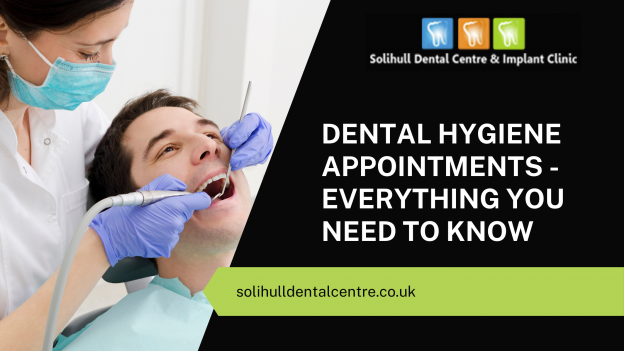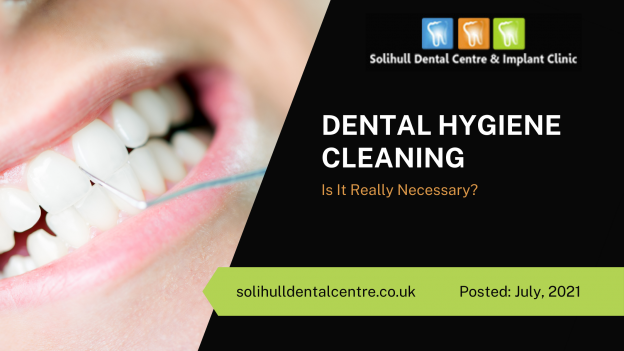Have you ever wondered why dental professionals emphasise oral hygiene maintenance and regular checkup appointments? This is because good oral health is not just essential for having a beautiful smile but also for keeping us healthy and fit physically. Unfortunately, the Oral Health Foundation estimates that over 39% of adults in the UK don’t visit their dentist regularly. As a result, around 30% of British adults have tooth decay, while 64% of them have visible plaque and tartar deposits on their teeth. These problems mainly occur due to oral hygiene neglect and failure to visit a dentist for regular checkups. This blog will discuss the importance of regular hygiene appointments and how they can help you remain healthy, active, and physically fit.
Why Do We Need Regular Dental Visits?
Our oral cavity serves as a gateway to our entire body. Anything we eat or drink passes through the mouth first and then to the other body organs. So, if there is an underlying infection in the mouth, the harmful bacteria from the mouth can travel through the food to other body systems and cause severe, even life-threatening medical conditions. Although optimal oral hygiene helps prevent dental infections, sometimes it is not sufficient alone.
When you visit your dentist for regular hygiene checkups, they can detect dental problems in their developing stages, even when they are not visible to the naked eye. Besides, they can also detect parafunctional dental habits such as nail-biting, teeth clenching, or tongue thrusting and educate the patients regarding their harmful effects. So, regular hygiene visits can help you prevent dental problems and remain healthy physically.
What Does The Dentist/Hygienist Do At A Teeth Cleaning?
During professional teeth cleaning, your dentist will remove plaque and tartar deposits from your teeth – which are the primary reasons behind gum inflammation and teeth cavities in the oral cavity. Your dentist will use an ultrasonic scaler, a device whose tip vibrates at very high frequencies and physically breaks away the plaque and calculus deposits from the tooth surface and below the gumline. This helps neutralise the harmful bacteria in the plaque deposits, thereby preventing gum disease.
What Is Involved In A Dental Cleaning?
Professional dental cleaning is a simple procedure.
- First, your dentist will apply a topical anaesthetic agent over the gums to make you comfortable and pain-free.
- Next, they will use an ultrasonic scaler to remove the plaque and tartar deposit from all the surfaces of your teeth.
- They will also go below the gum line to remove tartar from the tooth roots.
- After completing the procedure, your dentist may prescribe over-the-counter pain medication to subside the post-operative inflammation and discomfort.
Why Do Dentists Check Your Tongue?
The colour and texture of our tongue speak volumes about our oral and physical health. For example, the tongue’s colour changes when one suffers from various oral and systemic infections. Similarly, white coats on the tongue may indicate an immune-related disease or tumours. That is why dentists check every patient’s tongue during a routine clinical examination to ensure no underlying or developing problems.
Do You Brush Your Teeth Before Having Your Teeth Cleaned?
It is not uncommon to have slight gum swelling, pain, and discomfort after professional teeth cleaning. However, this should not stop you from brushing and flossing. In fact, dentists recommend that you continue brushing your teeth, usually after teeth cleaning. However, to reduce the discomfort, you should use a soft-bristled toothbrush and use very gentle pressure while brushing to minimise the discomfort.
How Do You Address Your Dental Hygiene?
Looking after your dental hygiene does not require extensive work. All you need to do is brush your teeth at least a day and floss at least once daily. However, what is more, important than the frequency of brushing and flossing is using the correct brushing technique. Another way to look after your oral health is to eat a tooth-friendly diet comprising green vegetables and fibrous fruits and avoid carbohydrate- and sugar-rich foods. That’s all it takes to enjoy a fresh breath and a healthy, beautiful smile.
Are Dentists Trained To Do Hygienist Work?
Yes, dentists are trained in dental school to provide dental hygiene treatment. However, they generally focus on more specialised work such as cosmetic, restorative, and orthodontic treatment and delegate the preventive dental work to dental hygienists. Dental hygienists are professionals who are trained to provide preventive treatment such as teeth cleaning, making dental impressions, and fluoride therapy. So, it is ok to get your teeth cleaning done by a dentist or a trained dental hygienist.
What Kind Of Tools Do Dental Hygienists Use?
Dental hygienists use a variety of tools to perform teeth cleaning.
- For example, they use different hand scalers, which are metallic instruments used to remove plaque and tartar deposits manually.
- They also have probes that measure the depth of pockets formed between the teeth and gums due to gum inflammation.
- Finally, they also use ultrasonic scalers that mechanically remove plaque and tartar deposits.
Are Dental Hygienist Appointments Worth It?
At every dental hygiene appointment, your hygienist will perform a thorough clinical examination and diagnose any underlying problems. They will detect and treat issues during their initial stages – long before they cause permanent damage to your teeth or cause more significant oral health problems. Therefore, dental hygiene visits are worth it as they save you from spending enormous time and money on dental treatment for avoidable dental issues.
Did you know that our oral health status can directly influence our physical health and well-being? That is why dentists worldwide recommend their patients visit them for preventive checkups to enjoy a healthy smile and perfect physical health. So, if you are looking for a good dentist in West Midlands for preventive treatment, look no more! Solihull Dental Centre and Implant Clinic offer all dental services for your entire family under one roof at affordable rates. So, request a new patient appointment with us and let us take good care of your whole family’s dental health.




